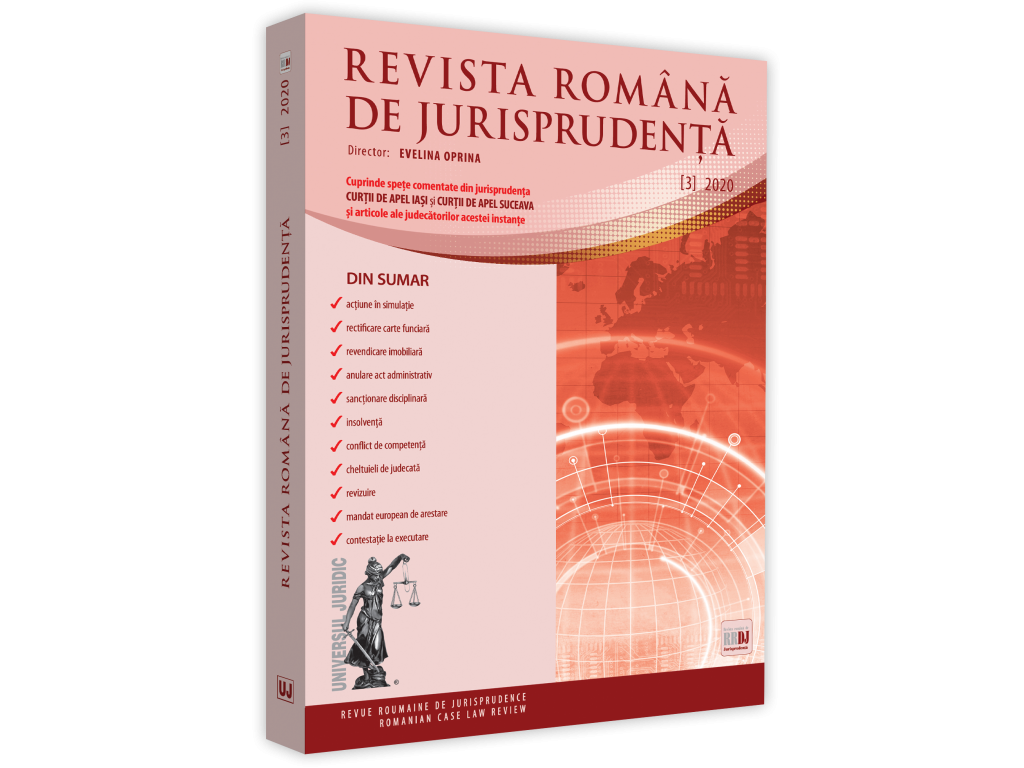The standard of evidence in support of a conviction. Presumption of innocence. Evaluation of evidence
DREPT PENAL ŞI DREPT PROCESUAL PENAL
Abstract
Any solution pronounced by a court of law can only be based on legally adduced and convincing evidence, as the ECHR ruled in the case of Telfner v. Austria, and the purpose of the criminal trial is that any person who committed an offence be punished as guilty and no innocent person be charged under the criminal law. According to Art. 99 para. (2) of the New Criminal Procedure Code, the accused benefits from the presumption of innocence and is not bound to prove its innocence. On the contrary, any person is the titleholder of a distinct right to be treated as innocent until guilt is determined by a final criminal decision. The lack of evidence, either because the biological traces have been altered or simply because it does not exist can only be interpreted in favor of the accused, presumed innocent, the doubt being in their favor (in dubio pro reo).








